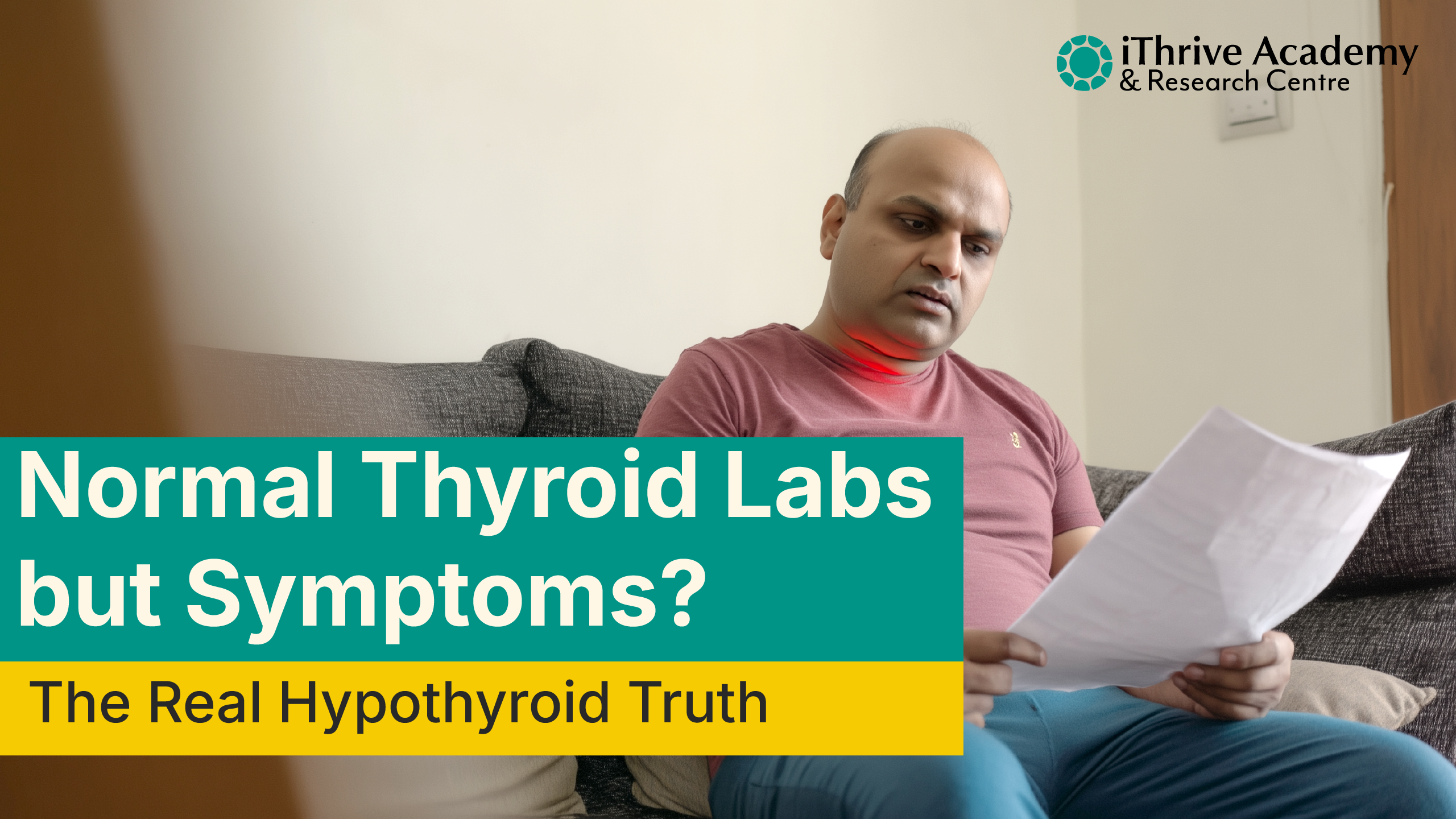Introduction
Why am I so tired all the time?
Why do I keep catching colds?
Why does my mood dip even when life is going okay?
Most of us have asked at least one of these questions, and often brushed it off as “just stress” or “lack of sleep.” But what if there’s a silent nutrient at play behind all this?
Vitamin D, often called the “sunshine vitamin,” is one of the most overlooked keys to human health. Despite living in a country blessed with abundant sunlight, over 70% of Indians are deficient.1 And globally, this deficiency is identified as a silent epidemic.
We often tend to associate Vitamin D only with bone health, further linked to calcium absorption, strong teeth, preventing fractures. But that’s literally just one part of its story. This powerful hormone-like nutrient also has its impact on factors like immunity, energy levels, brain function, and even mood regulation.
So, what really happens if you don’t get enough Vitamin D? The answer goes far beyond just brittle bones, it’s also about how your body’s most vital systems can quietly lose balance.
In this blog, we’ll explore the real consequences of deficiency, why modern lifestyles make it so common, and how a functional nutrition approach helps uncover the why behind low Vitamin D, so you can move beyond patchwork fixes and into real transformation.
1. What Vitamin D is - and Why It Matters
Vitamin D isn’t just another item on your blood report, rather it’s more like your body’s silent multitasker. We call it a “vitamin,” but technically, it behaves more like a hormone, influencing hundreds of processes inside you.
Most people first think of bone health, and yes, vitamin D helps your body absorb calcium so your skeleton stays strong. But what often gets missed is how quickly it can get depleted. Long hours indoors, sunscreen use, aging skin, pollution, and even poor gut health can all limit how much vitamin D your body actually makes or absorbs. That means its role doesn’t stop at bones, it quietly influences immunity, mood, energy, and so much more. Vitamin D receptors are found in nearly every tissue, right from your brain to your immune cells. That means it plays a hand in regulating mood, energy, muscle strength, and even how your body fights off infections.
Fact: vitamin D is mainly made when your skin is exposed to sunlight. Add in modern lifestyles, maximum time indoors, sunscreen use, pollution, or simply living in areas with less year-round sun, and deficiencies become surprisingly common. Even if you “eat well,” very few foods naturally provide enough of it.
So when vitamin D runs low, your body starts missing out on this behind-the-scenes support. Weak immunity, brittle bones, fatigue, muscle weakness, or that persistent low mood, these can all trace back, at least in part, to not having enough of this nutrient. Vitamin D isn’t optional. It’s fundamental. And yet, because it works quietly, many people don’t realise its importance until the deficiency starts to take a toll.
2. Signs and Symptoms of Vitamin D Deficiency
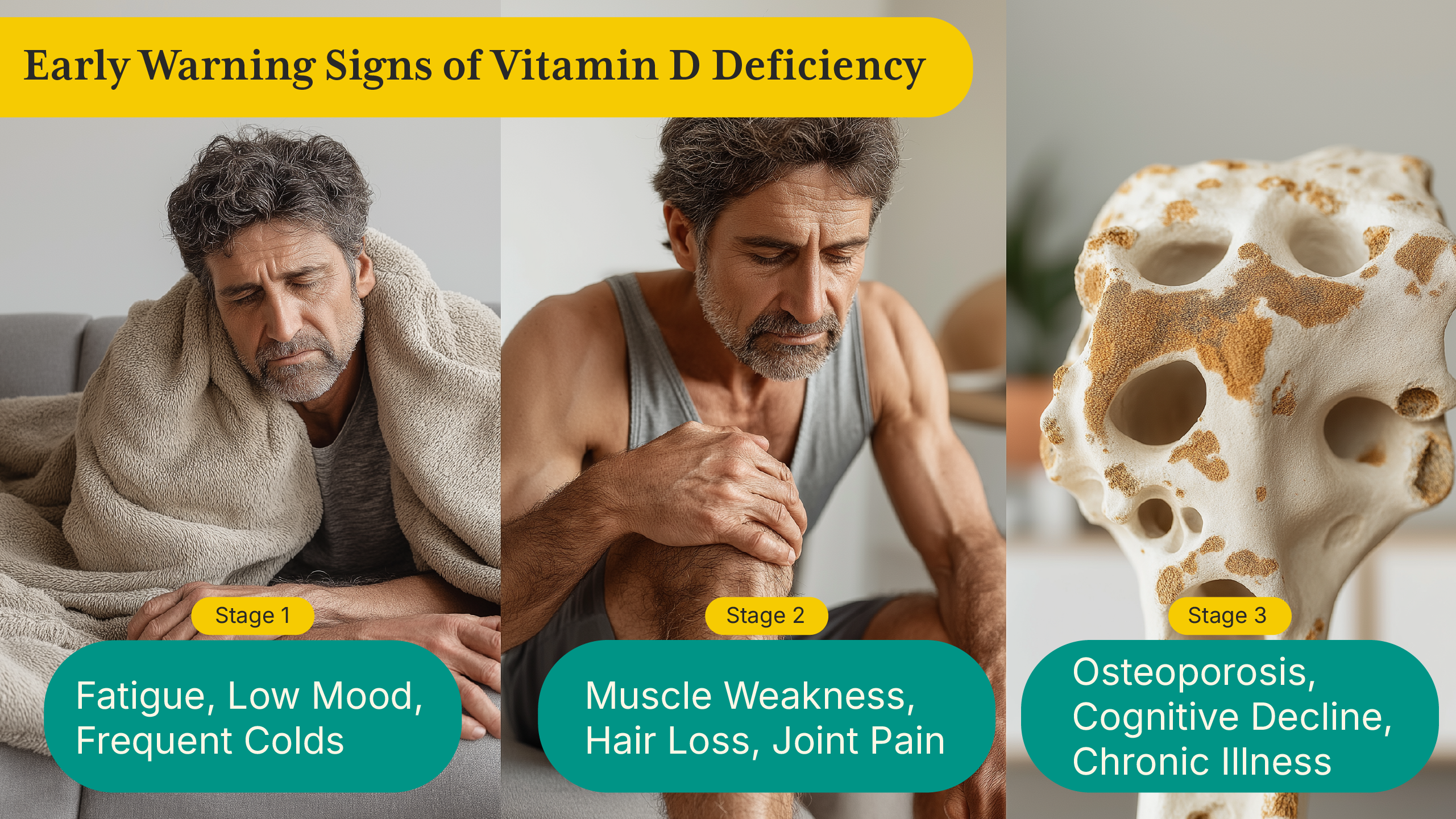
Vitamin D deficiency is tricky. It rarely announces itself loudly, and many of its warning signs can be brushed off as “just stress” or “part of getting older.” But when you look closer, the body often whispers before it screams.
Some of the early signs include:
- Low energy and fatigue that doesn’t lift, even after rest.
- Frequent colds or infections.
- Muscle weakness or joint pain, that further makes workouts or even daily tasks tougher.
- Mood changes such as unexplained sadness, irritability, or brain fog.
Over time, deficiencies can also slowly progress into visible issues involving brittle bones, hair loss, delayed healing of wounds, or even conditions such as rickets in children and osteomalesia in adults.
What makes it even more confusing and complex is how these symptoms overlap with other health problems. A person might chase solutions for low mood, weak immunity, or constant aches, without even realising that one common thread could be low vitamin D.
That’s why functional nutrition always encourages digging deeper. Instead of writing off fatigue or mood swings, we emphasise on: could this be your body’s way of telling you it’s running on empty in one of its most essential nutrients?
The good news is once identified, vitamin D deficiency is usually very correctable, and the shift in energy, resilience, and overall wellbeing can be dramatic.
3. What Happens in Your Body Without Enough Vitamin D

Vitamin D is both a nutrient and a hormone. It doesn’t just “support” your body, but it also regulates some of its most important systems. When your levels dip, its negative effect ripple via various areas.
Why Vitamin D Levels Go Low in the First Place
Deficiency is surprisingly common, and it isn’t always about not eating right. Some of the key reasons include:
- Limited sun exposure: Long hours indoors, living in polluted or crowded cities, or using sunscreen can reduce how much vitamin D your skin produces.
- Aging: As we grow older, our skin becomes less efficient at making vitamin D from sunlight.
- Gut health issues: Conditions like IBS, celiac, or poor digestion can impair absorption of fat-soluble vitamins like D.
- Lifestyle factors: Obesity, chronic stress, and certain medications can interfere with how the body processes and uses vitamin D.
- Dietary gaps: Very few foods naturally contain vitamin D, so diet alone often isn’t enough unless it’s consciously planned.
The Ripple Effect of Low Vitamin D in the Body
- Muscle and Bone Health: Vitamin D helps your body absorb phosphorus and calcium. Without it, bones start becoming weaker, muscles start losing their strength, and your risk of injuries and fractures goes up.
- Immune Function: Low vitamin D leaves your defense system sluggish. That means frequent colds, slow recovery from injuries and infections, and greater vulnerability to inflammation.
- Brain and Mood Health: Certain research works have linked vitamin d deficiency to greater risk of factors such as depression, cognitive decline, and even brain fog.2 While not being the sole factor, low vitamin D can tilt the balance towards low mood and poor mental health.
- Hormones and Energy: Vitamin D receptors sit in many tissues, including your thyroid and pancreas. When these systems don't get sufficient, you tend to witness fatigue, difficulty in maintaining weight, or imbalanced blood sugar.
- Chronic Disease Risk: Over the long term, persistent deficiency has been tied to osteoporosis, heart disease, autoimmune conditions, and metabolic problems.
The catch here is these problems don’t happen overnight. Deficiency builds slowly, and so does its damage. By the time it’s noticed, many people have already lived with compromised health for years.
That’s why detecting it early, with the right awareness and testing, makes such a difference. Prevention here isn’t just about stronger bones, it’s also all about protecting your overall vitality and future health.
4. Correcting Vitamin D Deficiency
- Sunlight: Aim for 15-30 minutes on arms and legs a few times a week, though lifestyle and skin tone affect how much you make.
- Food sources: Involve fatty fishes like sardine, salmon, mackerel, along with free-range eggs and organ meats, but at times diet alone is not enough.
- Supplements: Supplement is mostly needed for restoring levels, but its dosage should be guided post test and as per individual requirements.
5. iThrive Academy’s Approach
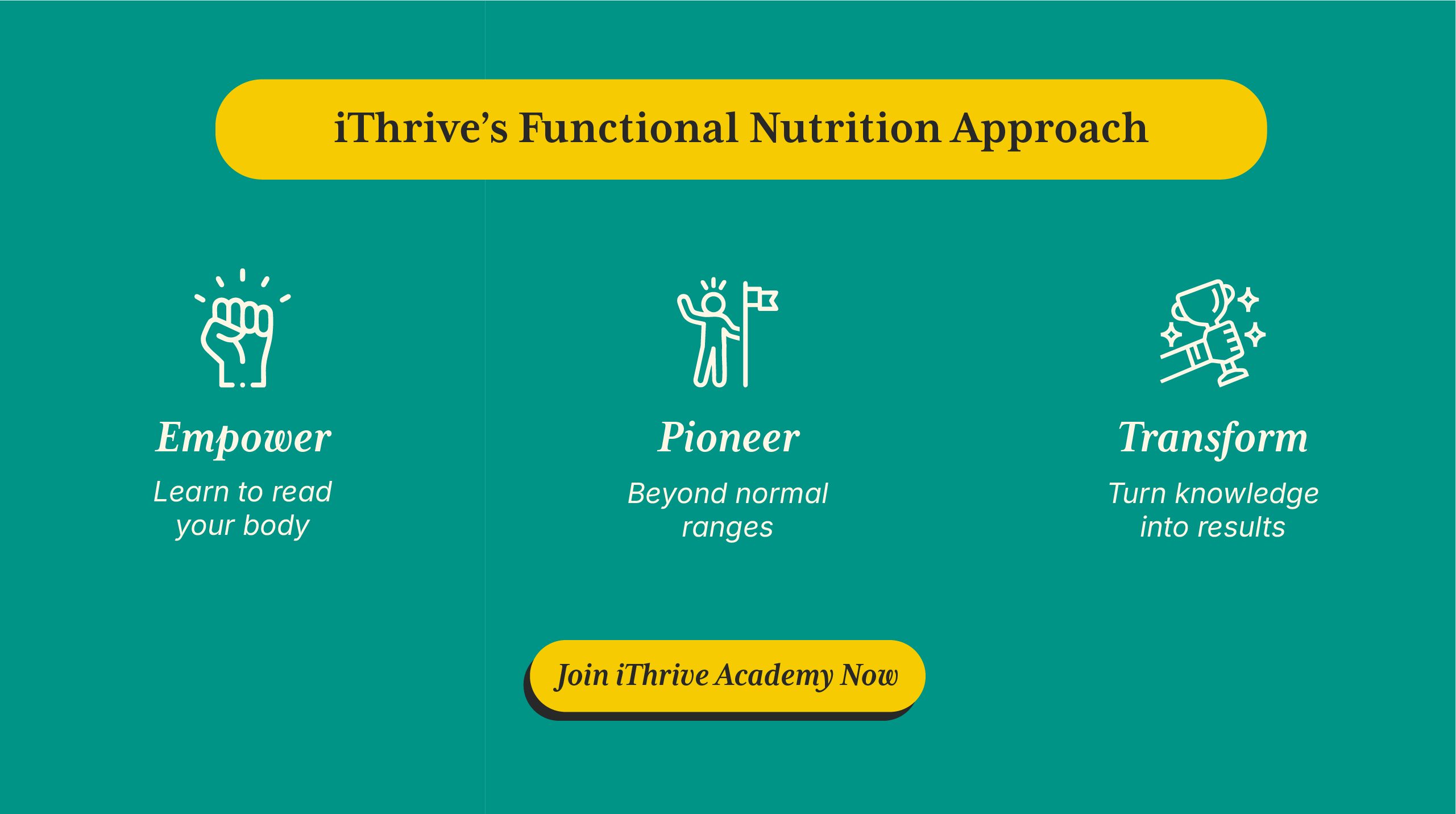
At iThrive Academy, we view vitamin D a lot more than just a random lab parameter. It’s rather a window into how well your body, mind, and environment are working together. Deficiency is rarely an isolated issue, it’s mostly a signal that something deeper is trying to seek attention, whether it being poor absorption, lifestyle imbalances, or chronic stress.
Our approach is built on three pillars:
- Empower: We give you appropriate tools and immense confidence to understand your body’s needs, and not just follow generic advice. Instead of blindly popping supplements, you actually learn how to interpret test results, spot monotonous patterns, and make choices that fit your unique context.
- Pioneer: We also challenge outdated norms, moving far beyond “normal” ranges to identify what’s truly optimal for health as well as vitality. That means connecting the dots between vitamin D and factors like energy, immunity, mood, and long-term resilience.
- Transform: This is exactly where knowledge gets transformed into action. Whether it’s about developing a personalised supplement plan, or guiding the clients via lifestyle interventional, or tackling root causes such as gut health, our programs teach you how to turn theory into meaningful results.
Through our iThrive Certified Functional Nutrition (iCFN) course and short, focused programs, we train you to think like a functional nutritionist. You don’t just memorize facts, but you learn to heal, guide, and lead with a lot of clarity and purpose.
Conclusion
Vitamin D might seem like a small detail in the bigger picture of health, but its impact is anything but small. Right from stronger muscles and bones to sharper immunity, better mood, and balanced hormones, it keeps supporting every system in your body. When levels drop, the effects build slowly but can touch everything from your daily energy to your long-term resilience.
The fact is that deficiency is correctable and preventable. Root-cause analysis, right lifestyle choices, and smart supplementation can altogether restore balance. But here’s an important detail many miss, Vitamin D works best when paired with Vitamin K2. While Vitamin D3 helps your body absorb calcium, Vitamin K2 ensures that calcium is directed into your bones and teeth rather than soft tissues like arteries. Without K2, supplementation alone may not give you the full benefit.
That’s why in iThrive Essentials, we bring both together in our Vitamin D3 + K2 formula, designed to support optimal bone health, stronger immunity, and overall resilience in aging.
At iThrive Academy, we believe awareness is the first step, but empowerment is the real goal. By understanding your body, learning how to work with its signals, and applying functional tools with confidence, you move from guessing to truly healing.
So, if you’ve ever wondered whether vitamin D really matters, the answer is clear - YES IT DOES. And by paying attention now, you give your body the foundation it needs to stay strong, vibrant, and resilient for years to come.
References
- https://www.mdpi.com/2072-6643/6/2/729
- https://agsjournals.onlinelibrary.wiley.com/doi/10.1111/jgs.15012







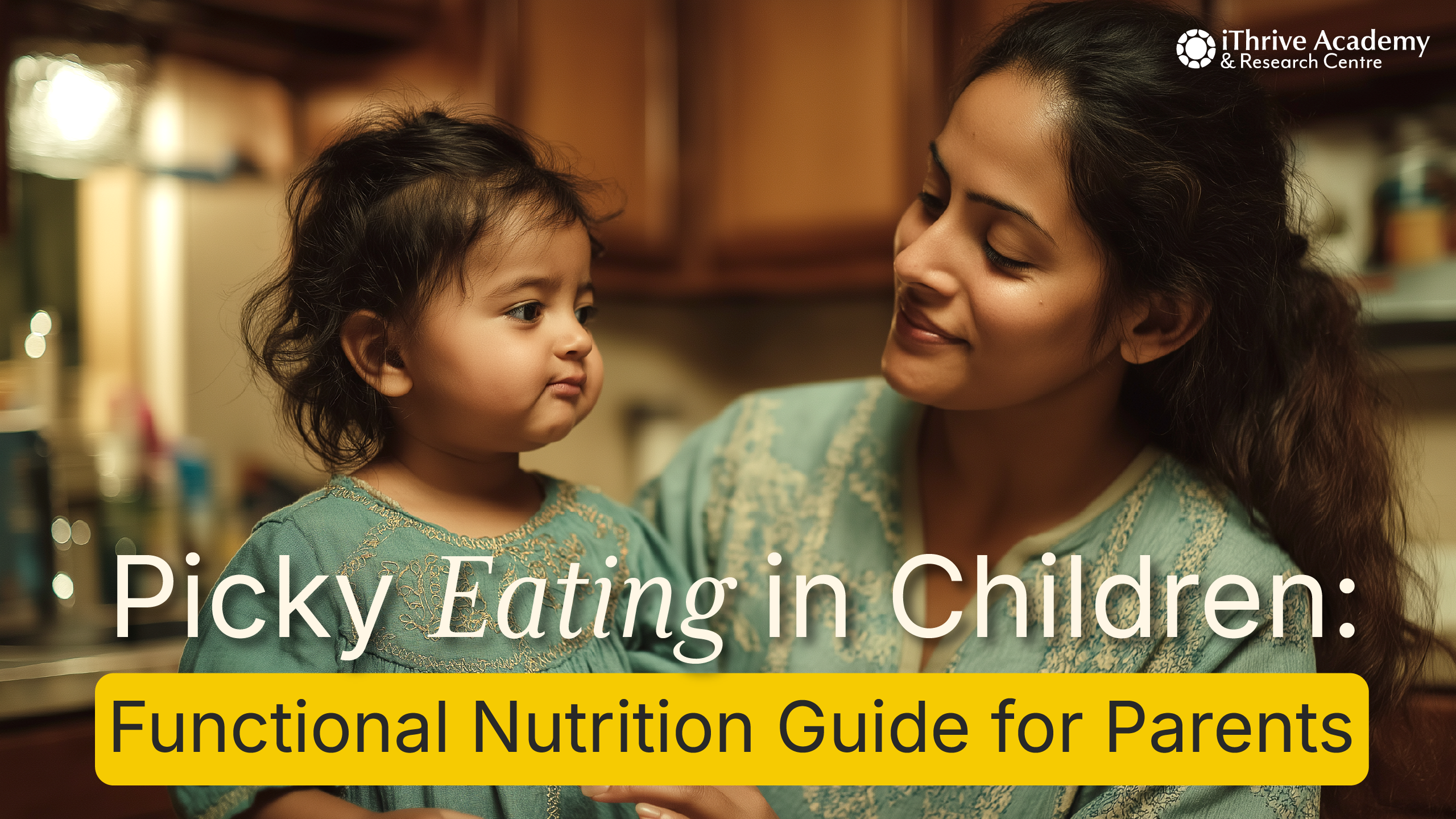
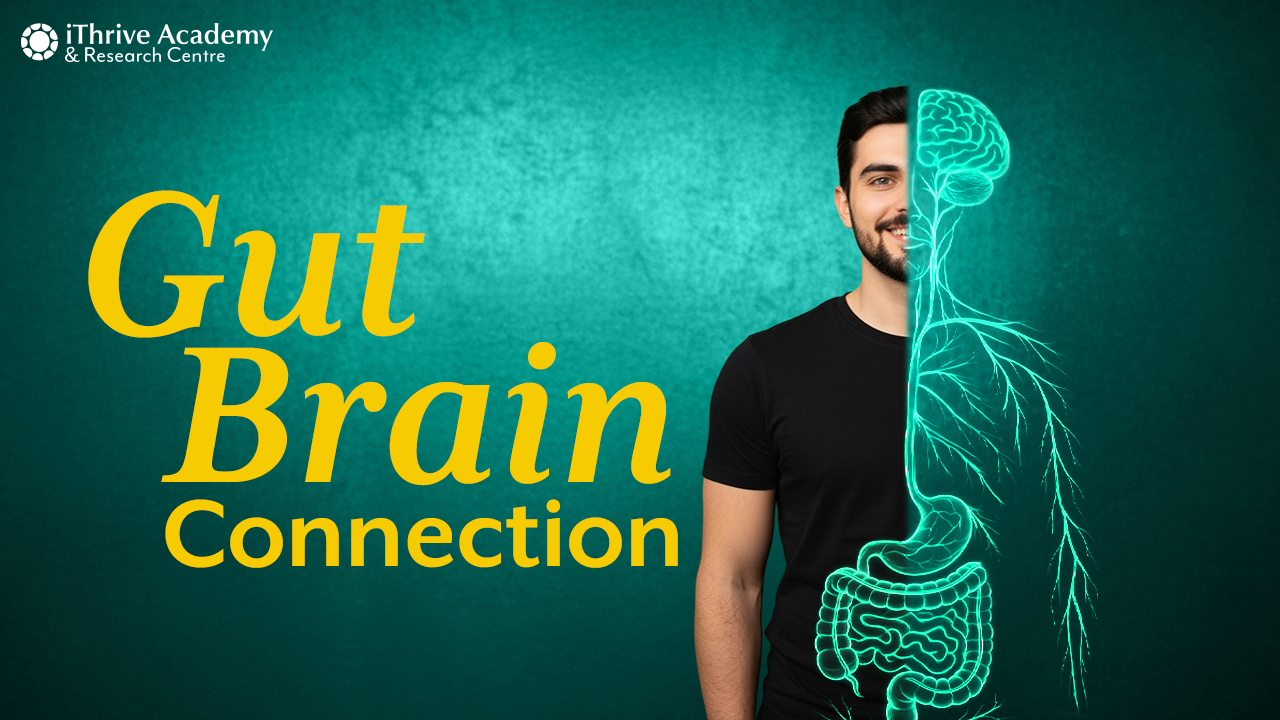

.jpg)





